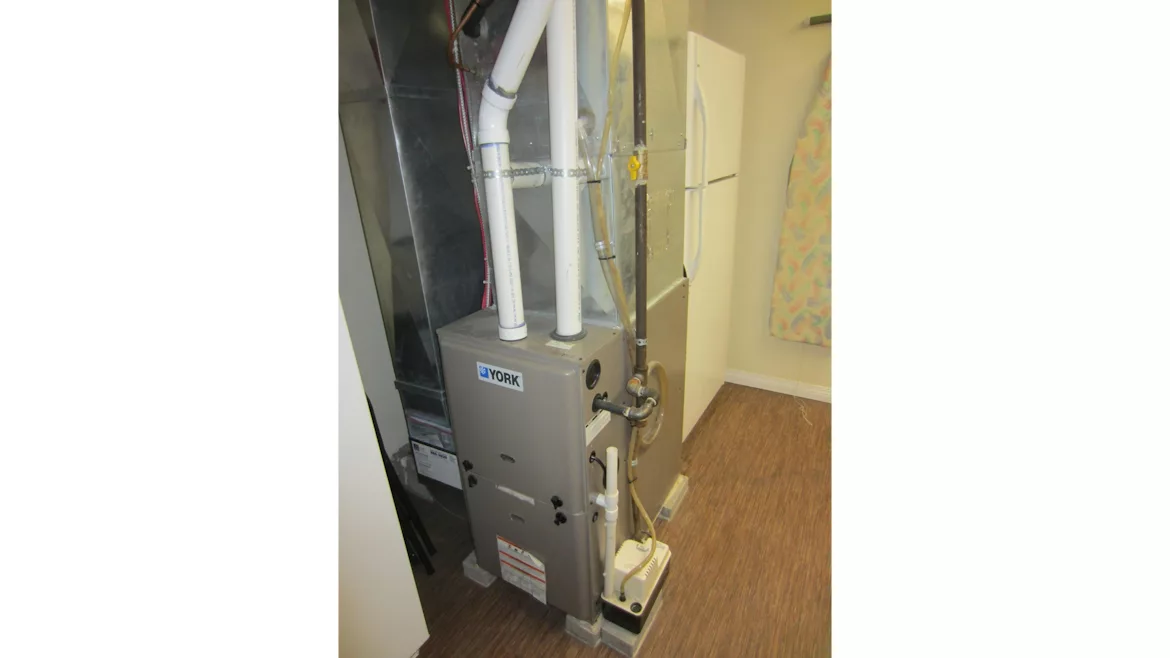A new federal standard for furnaces will require new furnaces to use about 15% less energy than today’s models — similar to the requirements Canada has had since 2010. The standard, taking effect in 2028, is also set to reduce average household utility costs by $350 over the equipment’s lifecycle — cutting average annual heating bills for consumers by about $50 per year. According to the U.S. Department of Energy (DOE) this efficiency standard will also cut 332 million metric tons on carbon dioxide emissions from the furnaces sold over 30 years and also reduce emissions of nitrogen oxides — an equivalent of shutting off 24 gas power plants by midcentury.
“This means non-condensing furnaces and commercial water heaters will likely cease production in the coming years,” said Alex Ayers, vice president of government affairs at the Heating, Air-Conditioning & Refrigeration Distributors International (HARDI) in a recent release on the subject. “The American Gas Association and its co-petitioners can appeal the decision, and the Trump Administration may try to bypass the anti-backsliding provision to repeal the rule.”
Other than a slight update made by the DOE in 2007, before this recent furnace efficiency standard, they hadn’t really been updated since its 1987 inception.
According to an Appliance Standards Awareness Project (ASAP) fact sheet, federal law requires the DOE to periodically review the standards of furnaces and other products. And in 2014, under a court-approved settlement, the DOE was required to finalize a new furnaces standard by 2016.
“This upholds long-awaited standards that will save households money on their heating bills while reducing pollution,” said Andrew deLaski, executive director of ASAP, in a National Consumer Law Center (NCLC) release. “Ensuring new furnaces are more efficient may disappoint some gas utilities, but it’s a triumph for consumers.”
In the same release, Berneta Haynes, senior attorney with NCLC was quoted, “The court has affirmed the Department of Energy’s effort to reduce gas heating bills for everyday Americans. Those who rent will especially benefit because the standards will end the sale of very inefficient heating systems that are often installed in rented homes.”
Many consumers have already made the switch — according to ASAP, about half of new purchases are already condensing models. The DOE projects this will continue, and the vast majority of consumers who might’ve purchased a non-condensing unit otherwise, will now instead purchase a condensing one.
Looking for quick answers on air conditioning, heating and refrigeration topics?
Try Ask ACHR NEWS, our new smart AI search tool.
Ask ACHR NEWS
“About one in twenty households will choose to switch to a heat pump rather than a condensing furnace,” the ASAP fact sheet said. “With electricity generation becoming cleaner in much of the United States, heat pumps can be a great option to further reduce climate emissions and, for some consumers, ease heating bills.”
As for what this means for distributors, Ayers said they can continue selling existing inventory because both rules are based on the date of manufacture, with no sell-through or installation deadline. Starting December 18, 2028, all residential furnaces made must meet a 95% AFUE (or higher) efficiency. Beginning October 6, 2026, all commercial gas storage water heaters must reach 95% thermal efficiency, and commercial instantaneous models must achieve 96% efficiency.
Whether you require installation, repair, or maintenance, our technicians will assist you with top-quality service at any time of the day or night. Take comfort in knowing your indoor air quality is the best it can be with MOE heating & cooling services Ontario's solution for heating, air conditioning, and ventilation that’s cooler than the rest.
Contact us to schedule a visit. Our qualified team of technicians, are always ready to help you and guide you for heating and cooling issues. Weather you want to replace an old furnace or install a brand new air conditioner, we are here to help you. Our main office is at Kitchener but we can service most of Ontario's cities
Source link



